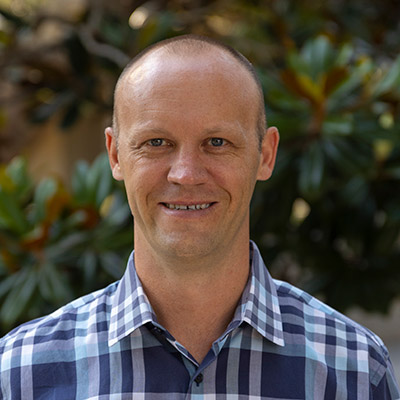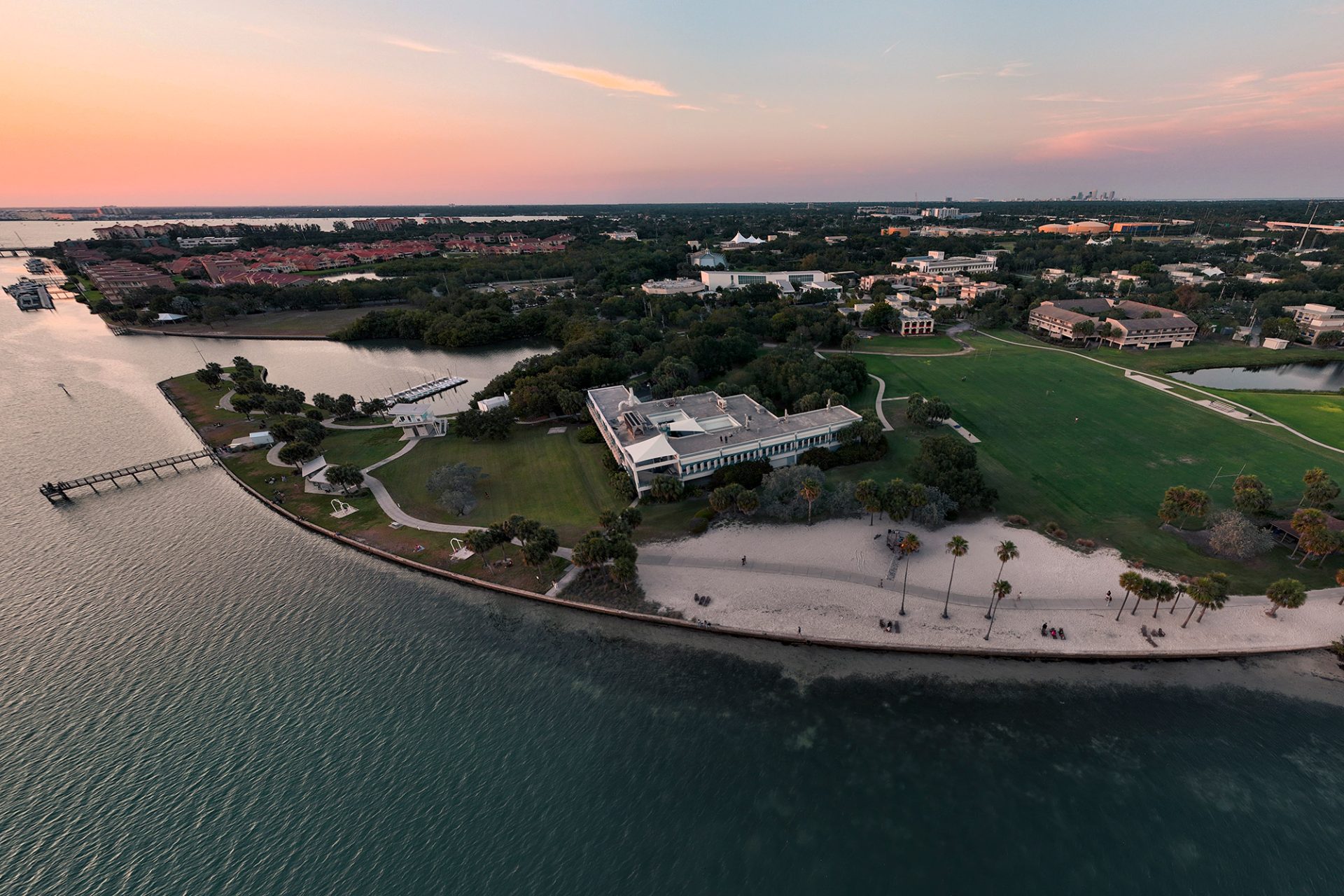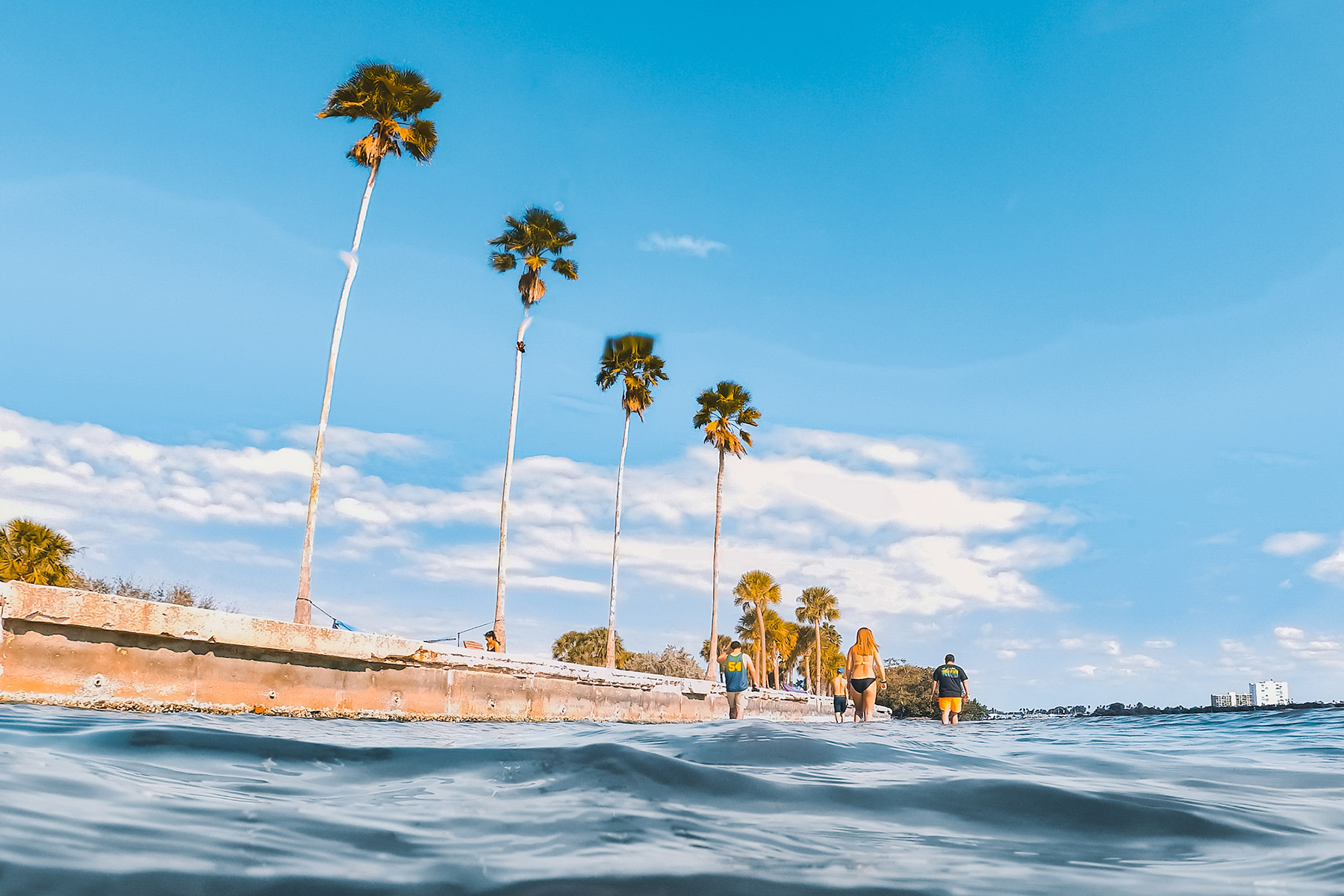The numbers are daunting. According to recent projections from the National Oceanic and Atmospheric Administration, the area around St. Petersburg, Florida, will experience a sea level rise of about 9.5 inches by 2040, and about 33.75 inches by 2070.
At Eckerd College, preparing for those scenarios began in 2019 with a Resiliency Framework Plan. The Plan has four goals: plan for change, integrate ecosystems into campus life, sustain and improve campus quality of life in spite of a changing climate, and incorporate climate adaptation into Eckerd’s identity.
Led by Adam Colby ’09, assistant vice president of operations and emergency management at Eckerd, the Plan is a collaborative effort by Eckerd staff, faculty and students, plus three vendors—Sarasota-based Sweet Sparkman Architecture and Interiors, Tampa-based Applied Sciences Consulting, and SCAPE Landscape Architecture of New York City.
The Plan also has attracted some noteworthy praise. Chosen from more than 30 applicants, the work was honored in the Community Preparedness and Resiliency category at the 29th Annual Future of the Region Awards Luncheon May 5 at the Hilton Clearwater Beach Resort & Spa. The luncheon was hosted by the Tampa Bay Regional Planning Council and held in conjunction with its Regional Resiliency Leadership Summit.
“The beauty of the Eckerd project is that this is what we’re trying to get our entire region to do,” explains Wren Krahl, deputy executive director of the Planning Council and a 1996 Eckerd graduate. “Eckerd has already done it. They looked at the College, studied the science and did a vulnerability assessment. The College asked, ‘What’s going to be underwater if we don’t do something?’ They’re looking at the what-ifs and taking action now.”
Krahl adds that the award demonstrates that smaller businesses and institutions can be leaders in planning for the effects of a changing climate. “A little town like Gulfport can win an award just as easily as Tampa,” she says. “Eckerd is a shining example of that. The award is really impressive for the College. The Dalí Museum has won the award in the past, and so has Johns Hopkins All Children’s Hospital. Eckerd is in good company.”
The Eckerd Plan was previewed at a town hall meeting on campus in April, presented by Colby. The Plan was created in phases:
- Initial Research and Analysis
- Vulnerability Assessment and Resiliency Framework Plan
According to the draft report, the Plan “offers recommendations for immediate actions to build resilience in the coming five years to pave the way for larger interventions that target 50 years into the future and beyond. We recommend that the College review and update the recommendations in this plan annually, engage community and government stakeholders immediately, and evaluate plans against the latest sea level rise data as it becomes available.”
The report also notes that Eckerd College “was constructed during a time when little was known about long-term environmental change. Soon after the campus was established and the first buildings were constructed, the College began expanding the campus footprint by filling land in the bay and reorganizing water movement throughout the site, shaping the scenic landscape that we are familiar with today.
“This includes stormwater ponds at the core of campus, around which most buildings are organized, and an expansive coastline. Seawalls were used to contain the edges of campus and to protect the shoreline from erosion. Buildings have since occupied locations near the coast, often at low elevations near the water’s edge. Past development was very calculated; design criteria only allowed for flooding during hurricanes or major storms or in excessive rainfall events.

Assistant Vice President of Operations and Emergency Management Adam Colby ’09
“The seawalls did their job, although they limited habitat growth in many locations at the coastline. Today, however, a changing climate poses challenges to Eckerd’s coastal campus. Recent data shows that the Gulf has risen approximately 8 inches over the last 80 years and is expected to increase 10–12 inches over the next 30 years.”
Colby adds that along with being the culmination of the work of many people, “the most important thing was to create a plan that helps transform the campus for the future.
“When we first started, it was so hard to figure out how to prepare the campus for sea level rise. What does that look like? Where do you begin? Where do you end? It’s the reason a lot of people don’t do a plan. It’s so difficult to take from start to finish.
“So being able to present it and to be recognized at the end of it … to us, it’s pretty special.”
The Resiliency Framework Plan will be submitted to the Eckerd College Board of Trustees for approval during its May meeting.















